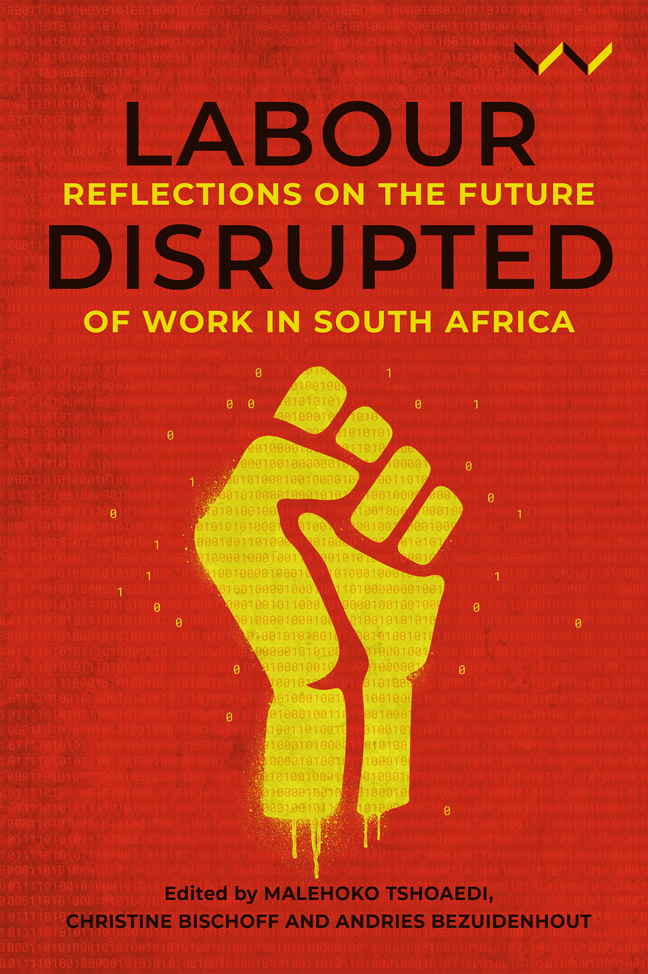Book contents
- Frontmatter
- Contents
- Figures and Tables
- Acknowledgement
- Acronyms
- Introduction: Disruptions and New Directions in South African Labour Studies
- Chapter 1 Fragmented Labour Movement, Fragmented Labour Studies: New Directions for Research and Theory
- PART I Changing Solidarities
- PART II Technology and Work
- PART III New Forms of Organising
- PART IV Labour and Lockdown
- Conclusion: Questions, Answers and New Directions
- Contributors
- Index
Introduction: Disruptions and New Directions in South African Labour Studies
Published online by Cambridge University Press: 01 March 2024
- Frontmatter
- Contents
- Figures and Tables
- Acknowledgement
- Acronyms
- Introduction: Disruptions and New Directions in South African Labour Studies
- Chapter 1 Fragmented Labour Movement, Fragmented Labour Studies: New Directions for Research and Theory
- PART I Changing Solidarities
- PART II Technology and Work
- PART III New Forms of Organising
- PART IV Labour and Lockdown
- Conclusion: Questions, Answers and New Directions
- Contributors
- Index
Summary
THE STATE OF LABOUR, THE STATE OF LABOUR STUDIES
This year marks the fiftieth anniversary of the 1973 Durban strikes, a strike wave that set in motion unprecedented dynamism in the South African labour movement after more than a decade of trade union decline. Because of apartheid legislation that curtailed union activities for black workers, as well as the persecution of union activists, trade unions were either incorporated into the government system of racialised collective bargaining (mostly through unions representing white workers), or had collapsed as formal organisations in the country and were forced to operate from exile. The strike wave of 1973 was a turning point in terms of workplace relations and the labour movement; the dynamism that followed eventually presented a significant challenge to the apartheid system as a whole when unions from the mining and manufacturing sectors merged to form the Congress of South African Trade Unions (Cosatu) in 1985. Ironically, labour law reforms that were intended to incorporate and tame the emerging militant unions opened up new spaces for organising; by the time the apartheid state wanted to roll back some of these laws, organised labour had become so strong that the state was forced to retreat (Friedman 1987; Baskin 1991).
Now, fifty years after this turning point, the dynamism of yore tends to be found in nostalgic reflections of the past rather than innovations in the present. To be sure, in so far as organised labour in South Africa is concerned, the past decade has been characterised by major disruptions in the order of things. As the country's dominant labour federation, Cosatu lost a large proportion of its manufacturing base when its metal union, the National Union of Metalworkers of South Africa (Numsa), left to form a rival federation, namely the South African Federation of Trade Unions (Saftu). In addition to this setback for worker unity and Cosatu's principle of ‘one country, one federation’, individual trade unions across the spectrum faced threats of deregistration. The Registrar of Labour started to take more seriously the Department of Labour's oversight of trade union financial governance and reporting after years during which labour factionalism had negatively impacted bureaucratic independence.
- Type
- Chapter
- Information
- Labour DisruptedReflections on the Future of Work in South Africa, pp. 1 - 14Publisher: Wits University PressPrint publication year: 2023



